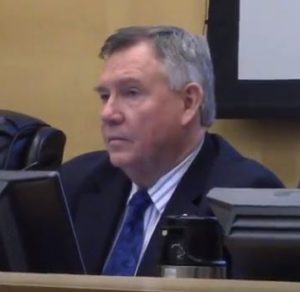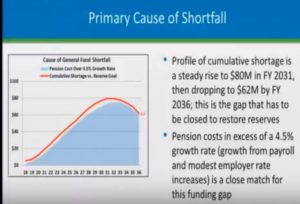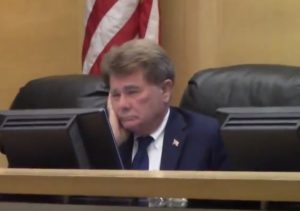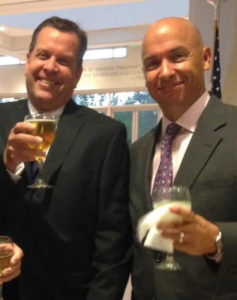Posts Tagged brice whitaker
Bruce Whitaker Puts On Another Empty Phony Show At The March 20, 2018 Fullerton City Council Meeting. By Barry Levinson
Posted by Joe Imbriano in Agenda 21 on March 25, 2018
Well Bruce Whitaker’s Council show is getting old, very old. Here is what transpired at the last Fullerton City Council meeting. A few of my friends, Zonya Townsend, Gary Gileno and Joe Imbriano spoke about California SB 54, called the California Values Act. (See below for a transcript of the law.)
https://youtu.be/nMItitO18iM
Yes a law that defies the US Constitution by making California a sanctuary state is a value for our Socialistic and Communistic leaders in Sacramento. Well our founding fathers never in their wildest imaginations every thought that a state legislature and Governor would interpret our representative democracy to be written for preferential treatment for illegal immigrants over the citizens of these United States.
Well my friends told them that all they had to do was to use the already written Los Alamitos ordinance and substitute the words City of Fullerton. Yet all but one of our useless council members did not even respond to their demands for them to uphold the very oath of office each and every one swore to uphold.
Then it came time for Bruce Whitaker to speak and it was vintage phony, insincere Whitaker at his best or should I say worst. For he rambled on about the merits of a law such as the one just passed in the City of Los Alamitos but before the echo of his words had dissipated, he continued to state that it might be worth it for Fullerton to do something even if it was symbolic. What! We are talking about an ordinance not symbolism Bruce.
So with a few words he seems to be supporting the Los Alamitos action but then concludes that maybe we can do something symbolic, which means with no teeth, no authority, i.e. something worthless. Yes this again shows just how worthless Bruce Whitaker is as a Fullerton Council member and how worthless he would be God forbid as our State Senator. He obviously felt compelled to throw his dwindling number of supporters a bone that he would actually do something constructive to support our US Constitution but ends up saying and doing nothing of real substance. This is not the first time Whitaker has taken a position only to let it die on the vine without demanding that an agenda item be brought forward to fix the problem.
For if Whitaker was not playing word games with his constituents, he could have and should have called for the council to place a very similar or the same measure as just passed in Los Alamitos on our next agenda for the council to hopefully approve in early April. But since Whitaker is all talk and absolutely no action, he failed to do anything of the sort. He continues to just suck oxygen out of our City Council chambers, without leaving a trace of change in Fullerton for posterity. That is another prime example of his phony empty rhetoric.
This is the legacy of Council member Bruce Whitaker as follows:
Bruce Whitaker was a Fullerton City Council member from 2010 to 20XX. He voted for and helped to bring Safe and Sane Fireworks to Fullerton once every Fourth of July weekend in 2012. To paraphrase a famous songs lyric: Is that all there is Council member Bruce Whitaker? Is that all there is?
In conclusion Council member Bruce Whitaker, no one buys your phony act anymore Bruce, no one! You continue to keep your string alive by not accomplishing anything of substance for the good people of Fullerton even though you have represented us for almost 8 years with a Republican majority, with either 60% or 80% of the council the entire time. That Fullertonians may possibly be a Guinness World Record to be in office 8 years and do absolutely nothing of substance for his supporters. And based on that empty record, he wants to be promoted to Sacramento. What a guy! What a phony politician!
| Senate Bill No. 54 |
| CHAPTER 495 |
An act to amend Sections 7282 and 7282.5 of, and to add Chapter 17.25 (commencing with Section 7284) to Division 7 of Title 1 of, the Government Code, and to repeal Section 11369 of the Health and Safety Code, relating to law enforcement.
[ Approved by Governor October 05, 2017. Filed with Secretary of State October 05, 2017. ]
LEGISLATIVE COUNSEL’S DIGEST
SB 54, De León. Law enforcement: sharing data.
Existing law provides that when there is reason to believe that a person arrested for a violation of specified controlled substance provisions may not be a citizen of the United States, the arresting agency shall notify the appropriate agency of the United States having charge of deportation matters.
This bill would repeal those provisions.
Existing law provides that whenever an individual who is a victim of or witness to a hate crime, or who otherwise can give evidence in a hate crime investigation, is not charged with or convicted of committing any crime under state law, a peace officer may not detain the individual exclusively for any actual or suspected immigration violation or report or turn the individual over to federal immigration authorities.
This bill would, among other things and subject to exceptions, prohibit state and local law enforcement agencies, including school police and security departments, from using money or personnel to investigate, interrogate, detain, detect, or arrest persons for immigration enforcement purposes, as specified, and would, subject to exceptions, proscribe other activities or conduct in connection with immigration enforcement by law enforcement agencies. The bill would apply those provisions to the circumstances in which a law enforcement official has discretion to cooperate with immigration authorities. The bill would require, by October 1, 2018, the Attorney General, in consultation with the appropriate stakeholders, to publish model policies limiting assistance with immigration enforcement to the fullest extent possible for use by public schools, public libraries, health facilities operated by the state or a political subdivision of the state, and courthouses, among others. The bill would require, among others, all public schools, health facilities operated by the state or a political subdivision of the state, and courthouses to implement the model policy, or an equivalent policy. The bill would state that, among others, all other organizations and entities that provide services related to physical or mental health and wellness, education, or access to justice, including the University of California, are encouraged to adopt the model policy. The bill would require that a law enforcement agency that chooses to participate in a joint law enforcement task force, as defined, submit a report annually pertaining to task force operations to the Department of Justice, as specified. The bill would require the Attorney General, by March 1, 2019, and annually thereafter, to report on the types and frequency of joint law enforcement task forces, and other information, as specified, and to post those reports on the Attorney General’s Internet Web site. The bill would require law enforcement agencies to report to the department annually regarding transfers of persons to immigration authorities. The bill would require the Attorney General to publish guidance, audit criteria, and training recommendations regarding state and local law enforcement databases, for purposes of limiting the availability of information for immigration enforcement, as specified. The bill would require the Department of Corrections and Rehabilitation to provide a specified written consent form in advance of any interview between a person in department custody and the United States Immigration and Customs Enforcement regarding civil immigration violations.
This bill would state findings and declarations of the Legislature relating to these provisions.
By imposing additional duties on public schools and local law enforcement agencies, this bill would impose a state-mandated local program.
The California Constitution requires the state to reimburse local agencies and school districts for certain costs mandated by the state. Statutory provisions establish procedures for making that reimbursement.
This bill would provide that, if the Commission on State Mandates determines that the bill contains costs mandated by the state, reimbursement for those costs shall be made pursuant to the statutory provisions noted above.
DIGEST KEY
Vote: majority Appropriation: no Fiscal Committee: yes Local Program: yes
BILL TEXT
THE PEOPLE OF THE STATE OF CALIFORNIA DO ENACT AS FOLLOWS:
SECTION 1.
Section 7282 of the Government Code is amended to read:
7282.
For purposes of this chapter, the following terms have the following meanings:
(a) “Conviction” shall have the same meaning as subdivision (d) of Section 667 of the Penal Code.
(b) “Eligible for release from custody” means that the individual may be released from custody because one of the following conditions has occurred:
(1) All criminal charges against the individual have been dropped or dismissed.
(2) The individual has been acquitted of all criminal charges filed against him or her.
(3) The individual has served all the time required for his or her sentence.
(4) The individual has posted a bond.
(5) The individual is otherwise eligible for release under state or local law, or local policy.
(c) “Hold request,” “notification request,” and “transfer request” have the same meanings as provided in Section 7283. Hold, notification, and transfer requests include requests issued by the United States Immigration and Customs Enforcement or the United States Customs and Border Protection as well as any other immigration authorities.
(d) “Law enforcement official” means any local agency or officer of a local agency authorized to enforce criminal statutes, regulations, or local ordinances or to operate jails or to maintain custody of individuals in jails, and any person or local agency authorized to operate juvenile detention facilities or to maintain custody of individuals in juvenile detention facilities.
(e) “Local agency” means any city, county, city and county, special district, or other political subdivision of the state.
(f) “Serious felony” means any of the offenses listed in subdivision (c) of Section 1192.7 of the Penal Code and any offense committed in another state which, if committed in California, would be punishable as a serious felony as defined by subdivision (c) of Section 1192.7 of the Penal Code.
(g) “Violent felony” means any of the offenses listed in subdivision (c) of Section 667.5 of the Penal Code and any offense committed in another state which, if committed in California, would be punishable as a violent felony as defined by subdivision (c) of Section 667.5 of the Penal Code.
SEC. 2.
Section 7282.5 of the Government Code is amended to read:
7282.5.
(a) A law enforcement official shall have discretion to cooperate with immigration authorities only if doing so would not violate any federal, state, or local law, or local policy, and where permitted by the California Values Act (Chapter 17.25 (commencing with Section 7284)). Additionally, the specific activities described in subparagraph (C) of paragraph (1) of subdivision (a) of, and in paragraph (4) of subdivision (a) of, Section 7284.6 shall only occur under the following circumstances:
(1) The individual has been convicted of a serious or violent felony identified in subdivision (c) of Section 1192.7 of, or subdivision (c) of Section 667.5 of, the Penal Code.
(2) The individual has been convicted of a felony punishable by imprisonment in the state prison.
(3) The individual has been convicted within the past five years of a misdemeanor for a crime that is punishable as either a misdemeanor or a felony for, or has been convicted within the last 15 years of a felony for, any of the following offenses:
(A) Assault, as specified in, but not limited to, Sections 217.1, 220, 240, 241.1, 241.4, 241.7, 244, 244.5, 245, 245.2, 245.3, 245.5, 4500, and 4501 of the Penal Code.
(B) Battery, as specified in, but not limited to, Sections 242, 243.1, 243.3, 243.4, 243.6, 243.7, 243.9, 273.5, 347, 4501.1, and 4501.5 of the Penal Code.
(C) Use of threats, as specified in, but not limited to, Sections 71, 76, 139, 140, 422, 601, and 11418.5 of the Penal Code.
(D) Sexual abuse, sexual exploitation, or crimes endangering children, as specified in, but not limited to, Sections 266, 266a, 266b, 266c, 266d, 266f, 266g, 266h, 266i, 266j, 267, 269, 288, 288.5, 311.1, 311.3, 311.4, 311.10, 311.11, and 647.6 of the Penal Code.
(E) Child abuse or endangerment, as specified in, but not limited to, Sections 270, 271, 271a, 273a, 273ab, 273d, 273.4, and 278 of the Penal Code.
(F) Burglary, robbery, theft, fraud, forgery, or embezzlement, as specified in, but not limited to, Sections 211, 215, 459, 463, 470, 476, 487, 496, 503, 518, 530.5, 532, and 550 of the Penal Code.
(G) Driving under the influence of alcohol or drugs, but only for a conviction that is a felony.
(H) Obstruction of justice, as specified in, but not limited to, Sections 69, 95, 95.1, 136.1, and 148.10 of the Penal Code.
(I) Bribery, as specified in, but not limited to, Sections 67, 67.5, 68, 74, 85, 86, 92, 93, 137, 138, and 165 of the Penal Code.
(J) Escape, as specified in, but not limited to, Sections 107, 109, 110, 4530, 4530.5, 4532, 4533, 4534, 4535, and 4536 of the Penal Code.
(K) Unlawful possession or use of a weapon, firearm, explosive device, or weapon of mass destruction, as specified in, but not limited to, Sections 171b, 171c, 171d, 246, 246.3, 247, 417, 417.3, 417.6, 417.8, 4574, 11418, 11418.1, 12021.5, 12022, 12022.2, 12022.3, 12022.4, 12022.5, 12022.53, 12022.55, 18745, 18750, and 18755 of, and subdivisions (c) and (d) of Section 26100 of, the Penal Code.
(L) Possession of an unlawful deadly weapon, under the Deadly Weapons Recodification Act of 2010 (Part 6 (commencing with Section 16000) of the Penal Code).
(M) An offense involving the felony possession, sale, distribution, manufacture, or trafficking of controlled substances.
(N) Vandalism with prior convictions, as specified in, but not limited to, Section 594.7 of the Penal Code.
(O) Gang-related offenses, as specified in, but not limited to, Sections 186.22, 186.26, and 186.28 of the Penal Code.
(P) An attempt, as defined in Section 664 of, or a conspiracy, as defined in Section 182 of, the Penal Code, to commit an offense specified in this section.
(Q) A crime resulting in death, or involving the personal infliction of great bodily injury, as specified in, but not limited to, subdivision (d) of Section 245.6 of, and Sections 187, 191.5, 192, 192.5, 12022.7, 12022.8, and 12022.9 of, the Penal Code.
(R) Possession or use of a firearm in the commission of an offense.
(S) An offense that would require the individual to register as a sex offender pursuant to Section 290, 290.002, or 290.006 of the Penal Code.
(T) False imprisonment, slavery, and human trafficking, as specified in, but not limited to, Sections 181, 210.5, 236, 236.1, and 4503 of the Penal Code.
(U) Criminal profiteering and money laundering, as specified in, but not limited to, Sections 186.2, 186.9, and 186.10 of the Penal Code.
(V) Torture and mayhem, as specified in, but not limited to, Section 203 of the Penal Code.
(W) A crime threatening the public safety, as specified in, but not limited to, Sections 219, 219.1, 219.2, 247.5, 404, 404.6, 405a, 451, and 11413 of the Penal Code.
(X) Elder and dependent adult abuse, as specified in, but not limited to, Section 368 of the Penal Code.
(Y) A hate crime, as specified in, but not limited to, Section 422.55 of the Penal Code.
(Z) Stalking, as specified in, but not limited to, Section 646.9 of the Penal Code.
(AA) Soliciting the commission of a crime, as specified in, but not limited to, subdivision (c) of Section 286 of, and Sections 653j and 653.23 of, the Penal Code.
(AB) An offense committed while on bail or released on his or her own recognizance, as specified in, but not limited to, Section 12022.1 of the Penal Code.
(AC) Rape, sodomy, oral copulation, or sexual penetration, as specified in, but not limited to, paragraphs (2) and (6) of subdivision (a) of Section 261 of, paragraphs (1) and (4) of subdivision (a) of Section 262 of, Section 264.1 of, subdivisions (c) and (d) of Section 286 of, subdivisions (c) and (d) of Section 288a of, and subdivisions (a) and (j) of Section 289 of, the Penal Code.
(AD) Kidnapping, as specified in, but not limited to, Sections 207, 209, and 209.5 of the Penal Code.
(AE) A violation of subdivision (c) of Section 20001 of the Vehicle Code.
(4) The individual is a current registrant on the California Sex and Arson Registry.
(5) The individual has been convicted of a federal crime that meets the definition of an aggravated felony as set forth in subparagraphs (A) to (P), inclusive, of paragraph (43) of subsection (a) of Section 101 of the federal Immigration and Nationality Act (8 U.S.C. Sec. 1101), or is identified by the United States Department of Homeland Security’s Immigration and Customs Enforcement as the subject of an outstanding federal felony arrest warrant.
(6) In no case shall cooperation occur pursuant to this section for individuals arrested, detained, or convicted of misdemeanors that were previously felonies, or were previously crimes punishable as either misdemeanors or felonies, prior to passage of the Safe Neighborhoods and Schools Act of 2014 as it amended the Penal Code.
(b) In cases in which the individual is arrested and taken before a magistrate on a charge involving a serious or violent felony, as identified in subdivision (c) of Section 1192.7 or subdivision (c) of Section 667.5 of the Penal Code, respectively, or a felony that is punishable by imprisonment in state prison, and the magistrate makes a finding of probable cause as to that charge pursuant to Section 872 of the Penal Code, a law enforcement official shall additionally have discretion to cooperate with immigration officials pursuant to subparagraph (C) of paragraph (1) of subdivision (a) of Section 7284.6.
SEC. 3.
Chapter 17.25 (commencing with Section 7284) is added to Division 7 of Title 1 of the Government Code, to read:
CHAPTER 17.25. Cooperation with Immigration Authorities
7284.
This chapter shall be known, and may be cited, as the California Values Act.
7284.2.
The Legislature finds and declares the following:
(a) Immigrants are valuable and essential members of the California community. Almost one in three Californians is foreign born and one in two children in California has at least one immigrant parent.
(b) A relationship of trust between California’s immigrant community and state and local agencies is central to the public safety of the people of California.
(c) This trust is threatened when state and local agencies are entangled with federal immigration enforcement, with the result that immigrant community members fear approaching police when they are victims of, and witnesses to, crimes, seeking basic health services, or attending school, to the detriment of public safety and the well-being of all Californians.
(d) Entangling state and local agencies with federal immigration enforcement programs diverts already limited resources and blurs the lines of accountability between local, state, and federal governments.
(e) State and local participation in federal immigration enforcement programs also raises constitutional concerns, including the prospect that California residents could be detained in violation of the Fourth Amendment to the United States Constitution, targeted on the basis of race or ethnicity in violation of the Equal Protection Clause, or denied access to education based on immigration status. See Sanchez Ochoa v. Campbell, et al. (E.D. Wash. 2017) 2017 WL 3476777; Trujillo Santoya v. United States, et al. (W.D. Tex. 2017) 2017 WL 2896021; Moreno v. Napolitano (N.D. Ill. 2016) 213 F. Supp. 3d 999; Morales v. Chadbourne (1st Cir. 2015) 793 F.3d 208; Miranda-Olivares v. Clackamas County (D. Or. 2014) 2014 WL 1414305; Galarza v. Szalczyk (3d Cir. 2014) 745 F.3d 634.
(f) This chapter seeks to ensure effective policing, to protect the safety, well-being, and constitutional rights of the people of California, and to direct the state’s limited resources to matters of greatest concern to state and local governments.
(g) It is the intent of the Legislature that this chapter shall not be construed as providing, expanding, or ratifying any legal authority for any state or local law enforcement agency to participate in immigration enforcement.
7284.4.
For purposes of this chapter, the following terms have the following meanings:
(a) “California law enforcement agency” means a state or local law enforcement agency, including school police or security departments. “California law enforcement agency” does not include the Department of Corrections and Rehabilitation.
(b) “Civil immigration warrant” means any warrant for a violation of federal civil immigration law, and includes civil immigration warrants entered in the National Crime Information Center database.
(c) “Immigration authority” means any federal, state, or local officer, employee, or person performing immigration enforcement functions.
(d) “Health facility” includes health facilities as defined in Section 1250 of the Health and Safety Code, clinics as defined in Sections 1200 and 1200.1 of the Health and Safety Code, and substance abuse treatment facilities.
(e) “Hold request,” “notification request,” “transfer request,” and “local law enforcement agency” have the same meaning as provided in Section 7283. Hold, notification, and transfer requests include requests issued by United States Immigration and Customs Enforcement or United States Customs and Border Protection as well as any other immigration authorities.
(f) “Immigration enforcement” includes any and all efforts to investigate, enforce, or assist in the investigation or enforcement of any federal civil immigration law, and also includes any and all efforts to investigate, enforce, or assist in the investigation or enforcement of any federal criminal immigration law that penalizes a person’s presence in, entry, or reentry to, or employment in, the United States.
(g) “Joint law enforcement task force” means at least one California law enforcement agency collaborating, engaging, or partnering with at least one federal law enforcement agency in investigating federal or state crimes.
(h) “Judicial probable cause determination” means a determination made by a federal judge or federal magistrate judge that probable cause exists that an individual has violated federal criminal immigration law and that authorizes a law enforcement officer to arrest and take into custody the individual.
(i) “Judicial warrant” means a warrant based on probable cause for a violation of federal criminal immigration law and issued by a federal judge or a federal magistrate judge that authorizes a law enforcement officer to arrest and take into custody the person who is the subject of the warrant.
(j) “Public schools” means all public elementary and secondary schools under the jurisdiction of local governing boards or a charter school board, the California State University, and the California Community Colleges.
(k) “School police and security departments” includes police and security departments of the California State University, the California Community Colleges, charter schools, county offices of education, schools, and school districts.
7284.6.
(a) California law enforcement agencies shall not:
(1) Use agency or department moneys or personnel to investigate, interrogate, detain, detect, or arrest persons for immigration enforcement purposes, including any of the following:
(A) Inquiring into an individual’s immigration status.
(B) Detaining an individual on the basis of a hold request.
(C) Providing information regarding a person’s release date or responding to requests for notification by providing release dates or other information unless that information is available to the public, or is in response to a notification request from immigration authorities in accordance with Section 7282.5. Responses are never required, but are permitted under this subdivision, provided that they do not violate any local law or policy.
(D) Providing personal information, as defined in Section 1798.3 of the Civil Code, about an individual, including, but not limited to, the individual’s home address or work address unless that information is available to the public.
(E) Making or intentionally participating in arrests based on civil immigration warrants.
(F) Assisting immigration authorities in the activities described in Section 1357(a)(3) of Title 8 of the United States Code.
(G) Performing the functions of an immigration officer, whether pursuant to Section 1357(g) of Title 8 of the United States Code or any other law, regulation, or policy, whether formal or informal.
(2) Place peace officers under the supervision of federal agencies or employ peace officers deputized as special federal officers or special federal deputies for purposes of immigration enforcement. All peace officers remain subject to California law governing conduct of peace officers and the policies of the employing agency.
(3) Use immigration authorities as interpreters for law enforcement matters relating to individuals in agency or department custody.
(4) Transfer an individual to immigration authorities unless authorized by a judicial warrant or judicial probable cause determination, or in accordance with Section 7282.5.
(5) Provide office space exclusively dedicated for immigration authorities for use within a city or county law enforcement facility.
(6) Contract with the federal government for use of California law enforcement agency facilities to house individuals as federal detainees, except pursuant to Chapter 17.8 (commencing with Section 7310).
(b) Notwithstanding the limitations in subdivision (a), this section does not prevent any California law enforcement agency from doing any of the following that does not violate any policy of the law enforcement agency or any local law or policy of the jurisdiction in which the agency is operating:
(1) Investigating, enforcing, or detaining upon reasonable suspicion of, or arresting for a violation of, Section 1326(a) of Title 8 of the United States Code that may be subject to the enhancement specified in Section 1326(b)(2) of Title 8 of the United States Code and that is detected during an unrelated law enforcement activity. Transfers to immigration authorities are permitted under this subsection only in accordance with paragraph (4) of subdivision (a).
(2) Responding to a request from immigration authorities for information about a specific person’s criminal history, including previous criminal arrests, convictions, or similar criminal history information accessed through the California Law Enforcement Telecommunications System (CLETS), where otherwise permitted by state law.
(3) Conducting enforcement or investigative duties associated with a joint law enforcement task force, including the sharing of confidential information with other law enforcement agencies for purposes of task force investigations, so long as the following conditions are met:
(A) The primary purpose of the joint law enforcement task force is not immigration enforcement, as defined in subdivision (f) of Section 7284.4.
(B) The enforcement or investigative duties are primarily related to a violation of state or federal law unrelated to immigration enforcement.
(C) Participation in the task force by a California law enforcement agency does not violate any local law or policy to which it is otherwise subject.
(4) Making inquiries into information necessary to certify an individual who has been identified as a potential crime or trafficking victim for a T or U Visa pursuant to Section 1101(a)(15)(T) or 1101(a)(15)(U) of Title 8 of the United States Code or to comply with Section 922(d)(5) of Title 18 of the United States Code.
(5) Giving immigration authorities access to interview an individual in agency or department custody. All interview access shall comply with requirements of the TRUTH Act (Chapter 17.2 (commencing with Section 7283)).
(c) (1) If a California law enforcement agency chooses to participate in a joint law enforcement task force, for which a California law enforcement agency has agreed to dedicate personnel or resources on an ongoing basis, it shall submit a report annually to the Department of Justice, as specified by the Attorney General. The law enforcement agency shall report the following information, if known, for each task force of which it is a member:
(A) The purpose of the task force.
(B) The federal, state, and local law enforcement agencies involved.
(C) The total number of arrests made during the reporting period.
(D) The number of people arrested for immigration enforcement purposes.
(2) All law enforcement agencies shall report annually to the Department of Justice, in a manner specified by the Attorney General, the number of transfers pursuant to paragraph (4) of subdivision (a), and the offense that allowed for the transfer, pursuant to paragraph (4) of subdivision (a).
(3) All records described in this subdivision shall be public records for purposes of the California Public Records Act (Chapter 3.5 (commencing with Section 6250)), including the exemptions provided by that act and, as permitted under that act, personal identifying information may be redacted prior to public disclosure. To the extent that disclosure of a particular item of information would endanger the safety of a person involved in an investigation, or would endanger the successful completion of the investigation or a related investigation, that information shall not be disclosed.
(4) If more than one California law enforcement agency is participating in a joint task force that meets the reporting requirement pursuant to this section, the joint task force shall designate a local or state agency responsible for completing the reporting requirement.
(d) The Attorney General, by March 1, 2019, and annually thereafter, shall report on the total number of arrests made by joint law enforcement task forces, and the total number of arrests made for the purpose of immigration enforcement by all task force participants, including federal law enforcement agencies. To the extent that disclosure of a particular item of information would endanger the safety of a person involved in an investigation, or would endanger the successful completion of the investigation or a related investigation, that information shall not be included in the Attorney General’s report. The Attorney General shall post the reports required by this subdivision on the Attorney General’s Internet Web site.
(e) This section does not prohibit or restrict any government entity or official from sending to, or receiving from, federal immigration authorities, information regarding the citizenship or immigration status, lawful or unlawful, of an individual, or from requesting from federal immigration authorities immigration status information, lawful or unlawful, of any individual, or maintaining or exchanging that information with any other federal, state, or local government entity, pursuant to Sections 1373 and 1644 of Title 8 of the United States Code.
(f) Nothing in this section shall prohibit a California law enforcement agency from asserting its own jurisdiction over criminal law enforcement matters.
7284.8.
(a) The Attorney General, by October 1, 2018, in consultation with the appropriate stakeholders, shall publish model policies limiting assistance with immigration enforcement to the fullest extent possible consistent with federal and state law at public schools, public libraries, health facilities operated by the state or a political subdivision of the state, courthouses, Division of Labor Standards Enforcement facilities, the Agricultural Labor Relations Board, the Division of Workers Compensation, and shelters, and ensuring that they remain safe and accessible to all California residents, regardless of immigration status. All public schools, health facilities operated by the state or a political subdivision of the state, and courthouses shall implement the model policy, or an equivalent policy. The Agricultural Labor Relations Board, the Division of Workers’ Compensation, the Division of Labor Standards Enforcement, shelters, libraries, and all other organizations and entities that provide services related to physical or mental health and wellness, education, or access to justice, including the University of California, are encouraged to adopt the model policy.
(b) For any databases operated by state and local law enforcement agencies, including databases maintained for the agency by private vendors, the Attorney General shall, by October 1, 2018, in consultation with appropriate stakeholders, publish guidance, audit criteria, and training recommendations aimed at ensuring that those databases are governed in a manner that limits the availability of information therein to the fullest extent practicable and consistent with federal and state law, to anyone or any entity for the purpose of immigration enforcement. All state and local law enforcement agencies are encouraged to adopt necessary changes to database governance policies consistent with that guidance.
(c) Notwithstanding the rulemaking provisions of the Administrative Procedure Act (Chapter 3.5 (commencing with Section 11340) of Part 1 of Division 3 of Title 2), the Department of Justice may implement, interpret, or make specific this chapter without taking any regulatory action.
7284.10.
(a) The Department of Corrections and Rehabilitation shall:
(1) In advance of any interview between the United States Immigration and Customs Enforcement (ICE) and an individual in department custody regarding civil immigration violations, provide the individual with a written consent form that explains the purpose of the interview, that the interview is voluntary, and that he or she may decline to be interviewed or may choose to be interviewed only with his or her attorney present. The written consent form shall be available in English, Spanish, Chinese, Tagalog, Vietnamese, and Korean.
(2) Upon receiving any ICE hold, notification, or transfer request, provide a copy of the request to the individual and inform him or her whether the department intends to comply with the request.
(b) The Department of Corrections and Rehabilitation shall not:
(1) Restrict access to any in-prison educational or rehabilitative programming, or credit-earning opportunity on the sole basis of citizenship or immigration status, including, but not limited to, whether the person is in removal proceedings, or immigration authorities have issued a hold request, transfer request, notification request, or civil immigration warrant against the individual.
(2) Consider citizenship and immigration status as a factor in determining a person’s custodial classification level, including, but not limited to, whether the person is in removal proceedings, or whether immigration authorities have issued a hold request, transfer request, notification request, or civil immigration warrant against the individual.
7284.12.
The provisions of this act are severable. If any provision of this act or its application is held invalid, that invalidity shall not affect other provisions or applications that can be given effect without the invalid provision or application.
SEC. 4.
Section 11369 of the Health and Safety Code is repealed.
SEC. 5.
If the Commission on State Mandates determines that this act contains costs mandated by the state, reimbursement to local agencies and school districts for those costs shall be made pursuant to Part 7 (commencing with Section 17500) of Division 4 of Title 2 of the Government Code.
Could it be that our new Fullerton Police Chief, David Hendricks is cleaning house? If so, I only have one thing to say….HALLELUJAH! If only we could clean the dais of every single Council Member (Bruce Whitaker, Greg Sebourn, Jennifer Fitzgerald, Jesus Silva and Doug could move the public comments to end of the meeting Chafee*), The Prospects for our city may be looking up BY BARRY LEVINSON
Posted by Joe Imbriano in FULLERTON PRAVDA, The twighlight's last gleaming on January 22, 2018
Why would both Fullerton Police Captains, John Siko and Scott Rudisil, good buddies with former Police Chief Danny Hughes retire at the same time? As Captains directly under the Police Chief they basically run the police department. All that experience leaving at the same time with one of the replacing Captains coming from the Anaheim Police Department with no FPD experience whatsoever. Is this just a coincidence? I do not think so Fullertonians because any Police Chief would want one captain with experience during this transitional time. But what if, like I said in the title, this was a clearing of the house? What if this was a clearing of the Danny Hughes connections at the top of the management food chain? Then under those circumstances it would make perfect sense.
Was this just another failed attempt to set up Barry Levinson?
But Fullertonians it gets much more interesting. We now have heard from an anonymous source that another favorite son of Danny Hughes, Sgt. Jeff Corbett has been placed on Paid Administrative Leave. You remember Sgt. Corbett, the field Sgt. Danny boy called in the wee hours of November 9, 2016 to complete or should I maybe say not complete the job that four officers on the scene of the Joe Felz DUI accident apparently could not do according to former Police Chief Danny Hughes. Now if true, Corbett will be getting additional paid vacation for an extended period of time while under an apparent cloud at of course taxpayer’s expense.
We tried to confirm the status of Sgt. Jeff Corbett but our current Public Information Officer, another Danny Hughes favorite, Sgt Jon Radis would not confirm the current status of Sgt. Corbett. A Public Information Officer making close to $200,000 a year in salary and benefits would not give us the public any information. His reasoning was that it was a personnel matter and that according to Radus that is not given out.
Read this anoymous unconfired information post to the Informer last year about Radus, Corbett, Siko, Hughes and others–This came from the same source that leaked the Felz drunken hit an run the morning after the election in 2016 that let the cat out of the bag.
“In the Hughes letter regarding Felz hit and run, DUI. Hughes writes that he calls Sgt. Corbett directly. There is something called the chain of command. After hours at a police department the Watch Commander is the acting “Chief of Police”. Why would the Chief of police violate the chain of command and call a field Sgt. directly? Does Hughes have no confidence in the decision-making ability of his Watch Commander Andrew Goodrich? This never happens and in itself is very suspect but we all know why it occurred. Is it possible that Sgt. Corbett called his buddy Hughes, “ The chief of the Untouchables” to directly to start the cover-up ball rolling?
Several days after this incident Division Commander Siko calls the four initial responding officers to his office, the officers are chastised for comments they made regarding the obvious state of extreme intoxication displayed by Felz and recorded on their Axon body cameras. The Captain was dismayed that the officers did not have the common sense to know when to turn off their cameras when dealing with a highly political situation. (An officer turning off a body camera in the middle of a call is a very serious policy violation and when politics are involved, just plain stupid). The Captain Siko told the officers that they had just ruined the life of a good man.
One other overlooked fact that may have factored into the nights decision making of the Felz incident by the Mayor, Chief of Police and Watch Commander was on-going police management salary negotiations. At the time of the incident Lt. Andrew Goodrich was representing the Fullerton police management bargaining group and was in the process of working out a new agreement with Felz and the HR manager. One wonders if the thought of leverage in a late night “get out of Jail free pass” played a role?
Hughes has a history of attempting to trump-up charges on his foes and people he hates. This goes all the back to his patrol days. Hughes has a broad interpretation and selective misunderstanding of the elements of a crime when it suits his needs which when needed he uses as a weapon against others, as in the case of Mr. Barry Levinson. In most if these past cases the charges were baseless and were shot down once they were review by the DA’s office as in the case of Mr. Levinson and Corporal Irish.
In the case of Corporal Paul Irish the department had suspended Irish for changing his mind about conducting briefing training on “seat belt policy” and instead spoke about “Ethics”. The changing of training topics by a presenter happens all the time in a police briefing and is not a violation of policy.
Most of the persons present at the Irish briefing were interviewed by PSB and married to their story…a couple supervisors present who knew of Irish’s past history for reporting Hughes and Hughes’ “Untouchables” for ethics violations had embellished their accounts of the Irish Briefing training. Why would those officers embellish and lie about what Irish said in briefing, to gain or maintain favor with Hughes to preserve the status quo?
Irish was never asked by PSB about a recording but when asked later by the lawyer representing the city if he had recorded his training, Irish told the lawyer that he in fact had a copy of the recording. Fearing that the recording would be used to impeach the conflicting statements of some “Untouchable” witnesses Hughes and the city’s lawyer fought to have it thrown out. Hughes argued that by Corporal Irish, recording himself in a police briefing room in a city building attending by 25 people (most of which are uniformed cops with cameras strapped to their chest) is “confidential communication” as defined by California penal code section 632 PC.
Hughes amended the administrative charges against Irish and now charged him with the crime of 632 PC. A criminal investigation was now conducted against Corporal Irish. Months later the DA reviewed the charges and determined that Irish committed no crime. Later during arbitration, Irish’s lawyer, Mr. Michael Williamson was able to prove that in fact not only no law was violated by Irish recording himself no departmental policy was violated either.
One piece of evidence introduced in the Irish arbitration that shed some light on the Fullerton Culture of Corruption was a copy of a poster that was hanging in the locker of Fullerton Police PIO Sgt. Jon Radus. It is a photo-shop likeness of a movie poster from the movie the “Untouchables”. It depicts the face of Dan Hughes overlooking a gun toting gang of thirty’s era cops with the faces of Sgt. Corbett, Sgt. Radus, Sgt. Garah and Sgt. Petropulos superimposed on the bodies. All of these police supervisors played a dubious role in the termination of Corporal Paul Irish.
The arbitrator allowed the photograph of the poster to be introduced to support the theory that this “Untouchables clique” may have played a role in the treatment of Corporal Irish.
After one listens to the briefing training given by Corporal Paul Irish on September 6th 2014 those present and the listener does not hear a bitter employee using the platform of briefing training as his personal soap box to deliver a self-serving diatribe. One hears a honest, proud seasoned cop fed-up with the corruption at his department and sick of working with crooked cops and the supervisors who support and defend them.
Corporal Paul Irish wants his job back. He wants to serve the community of Fullerton again. He thinks he can because Hughes and Felz are now gone. I fear that when the City Council hears the recording and knows the whole story behind the termination of Corporal Irish, fearful of more city embarrassment, they will offer him a settlement he can’t refuse just to go away.”
end of anonymous post————–
We await to learn the fate of Sgt. Jeff Corbett as well. His departure would also be a very good sign that indeed the new police chief is clearing out the dead wood leftovers from the Danny Hughes regime. Will Tony Rackauckas, our OC DA finally step up and file obstruction of justice charges against Sgt. Corbett and Danny Hughes for allowing Joe Felz to be given a ride home after smashing his car into a tree and reeking like booze fleeing the scene of an accident? I can only pray that finally our DA will do the right thing.













Recent Comments